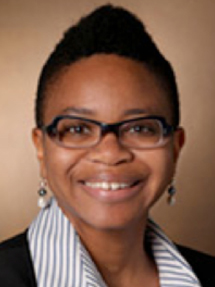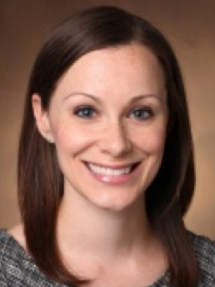Junior Faculty Teaching Fellow Spotlights: LaTonya Trotter and Courtney Cook
Each month, the CFT Newsletter highlights the work of our Junior Faculty Teaching Fellows. This month, LaTonya Trotter, Sociology, and Courtney Cook, Nursing, talk about their teaching philosophy and interests.
 LaTonya Trotter
LaTonya Trotter
I am a medical sociologist. However, most of my students are future physicians, nurses, and engineers, not social scientists. Therefore, my course goals are less about imparting the sociological canon and more about helping students learn to question the taken-for-granted nature of medical knowledge and bodily illness. My primary goal is for students to develop an awareness of social structure, even in those aspects of life we think of as being governed by objective facts. What are the social processes that have conspired to create our current diagnostic categories or the organization of physician training? What kinds of analytical strategies can we use “to see” the effect of forces we cannot directly touch or measure?
Developing an awareness of social structure is not something one memorizes from a lecture; it is something one practices. My students practice this awareness through reading, discussing, and writing about contemporary cases ranging from the diagnosis of fetal alcohol syndrome to the epidemic of heroin addiction. Through a sustained analysis of these cases, students are able to better understand how a society’s values and ongoing conflicts are reproduced through seemingly objective medical categories and institutions.
I hope that developing my student’s sociological perspective is more than an academic exercise, but is one they can use to tackle the kinds of problems they will encounter in their own careers. Because I want to build a sense of connection between what happens in the classroom and the larger world, I have begun to challenge myself to expand the audience for student work. For the last few years, I have asked students to submit a portion of their written work as content for a classroom blog. I find that when students are writing for their peers rather than a secret missive to me, their narrative tone shifts—writing for an actual audience raises their level of engagement and broadens the scope of their arguments. I get immense value out of seeing what our undergraduates are capable of when they stop “turning in homework” and start advancing ideas. The longer I teach, the more convinced I become that asking students to create content “for my eyes only,” is a wasted opportunity. I am currently experimenting with ways to expand the viewership of student work outside of the classroom, so stay tuned!
 Courtney Cook
Courtney Cook
My interest in teaching developed as an extension of my clinical practice. In my former role, I practiced full time clinically as an Acute Care Nurse Practitioner (ACNP) in the Neuroscience Intensive Care Unit (NSICU) at the University of North Carolina-Chapel Hill Hospital System. Through this experience, I was able to interact with medical students and residents. I eventually became clinical faculty at UNC School of Medicine where I taught third and fourth year medical students during their neurology clerkship in the NSICU. I was captivated by their passion for learning and commitment to helping care for critically ill patients. Eventually, I realized that teaching made me a better clinician and vice versa. I decided to pursue my doctorate in nursing to equip myself with the skills and credentials to be able to pursue an academic role. My passion is for clinical practice. I realized that individually the impact I can make on patients is somewhat limited, however, if I can contribute to educating 70 (+) nurse practitioners a year, suddenly the effect on patients’ lives increases exponentially. At Vanderbilt, I have been able to have a dual appointment so that I can teach and continue to practice clinically.
I teach N6102 Advanced Physiology and Pathophysiology in the Master of Science in Nursing program. Specifically, I work with Emergency Nurse Practitioner (ENP) and Adult-Gerotological Acute Care Nurse Practitioner (AG-ACNP) students who will ultimately practice in the Emergency Department or Intensive Care Units. After my first year of teaching, I identified two challenges which motivated me to apply for the Junior Faculty Teaching Fellowship. First, we have multiple entry points ranging from pre-specialty (students with a degree in another discipline who complete an accelerated year of nursing education at the RN level) and nurses with decades of experience. Second, we have a hybrid program with both local and distance students. Meeting the students’ needs based on different points of entry and scientific backgrounds has been challenging. Also, engaging students at a distance is something I am motivated to explore to ensure they are receiving a valuable, well-supported experience.
My teaching philosophy focuses on fostering an environment where information from the classroom is consistently applied clinically. It is imperative for students to create connections between course material, critical thinking, and application. I try to emphasize the value of our patient population and seek to inspire students to have a central focus on helping others. I find this motivates students to study, participate in diverse clinical experiences, and retain information because they have a sense of purpose. Instead of focusing on a grade, they focus on preparing to become a competent provider who can help the critically ill.

Leave a Response